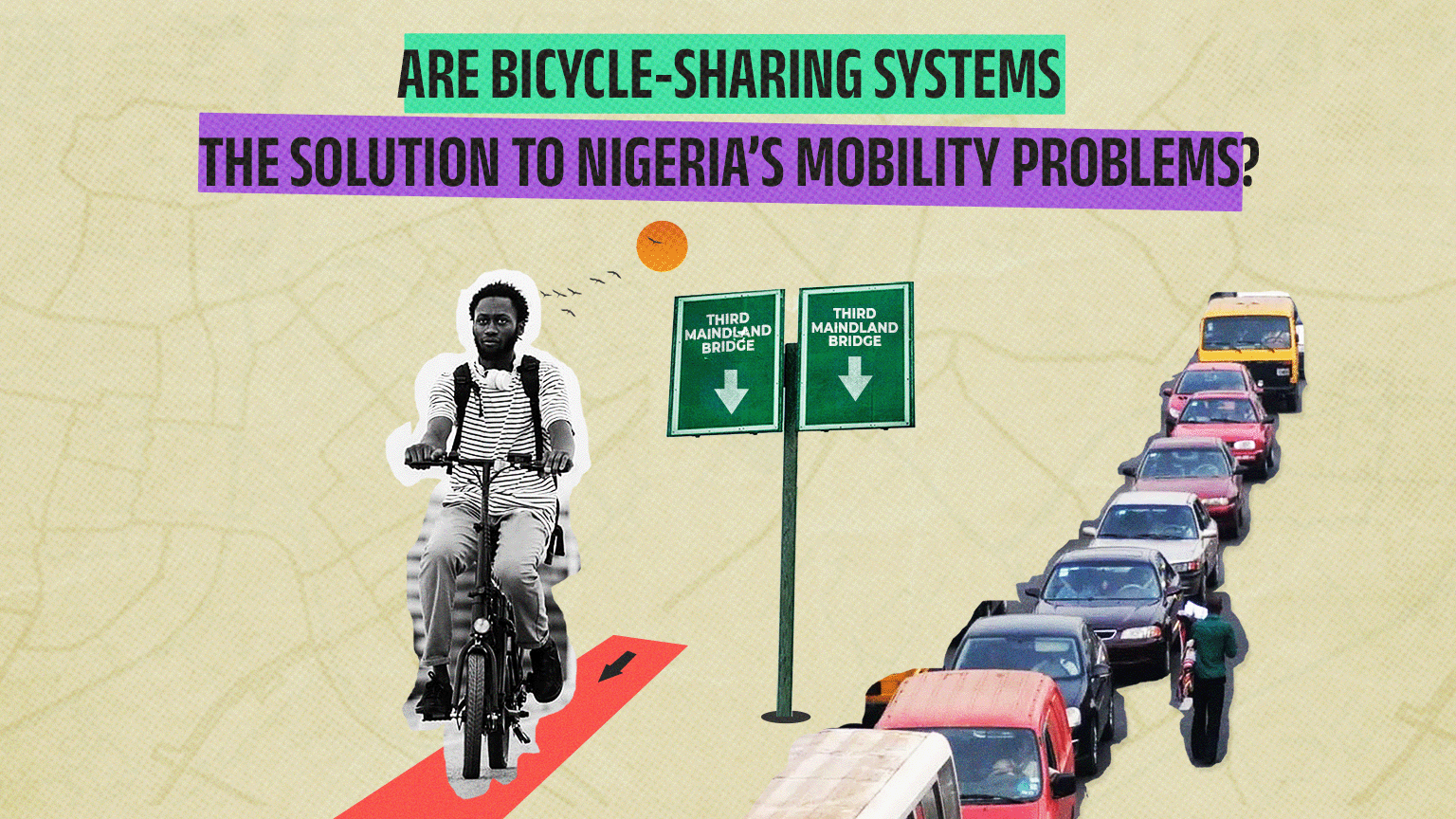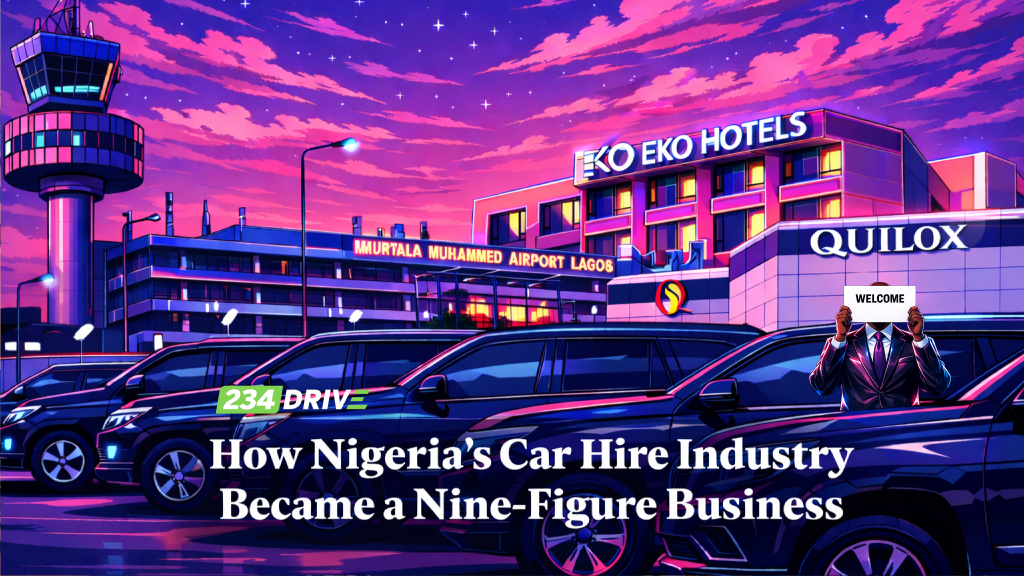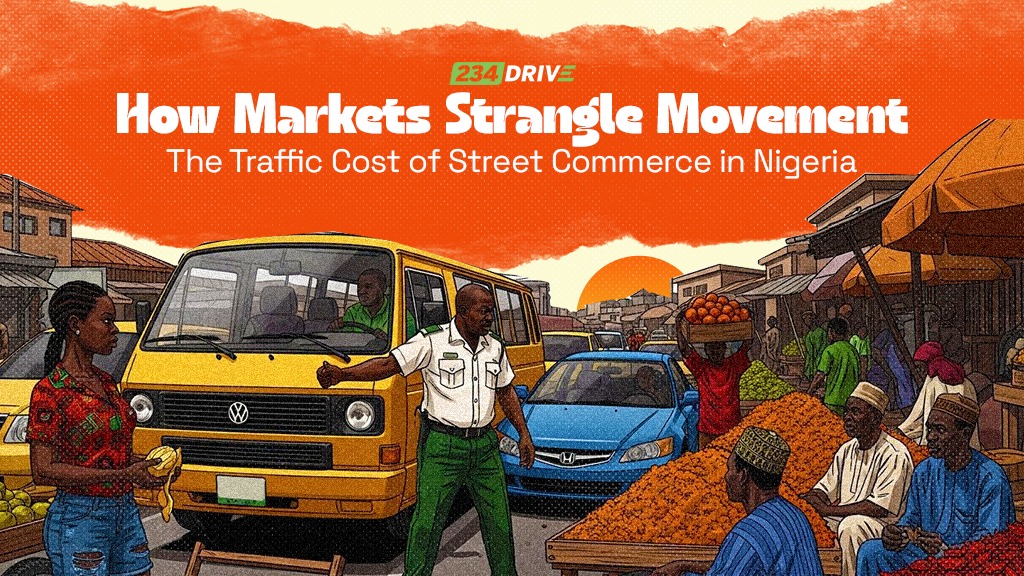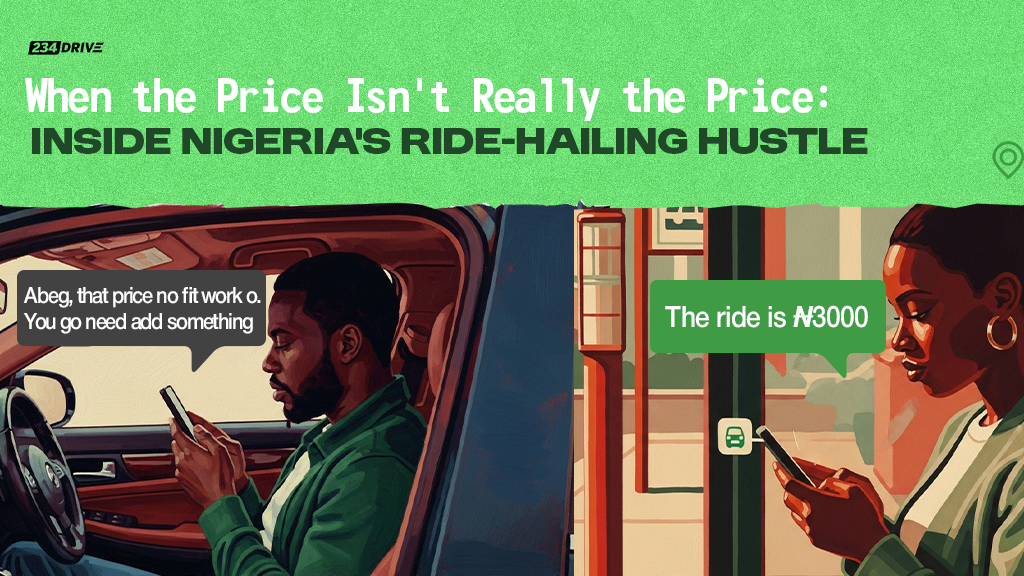Nigeria’s current reality is a huge contrast to its past. Today, the roads are flooded with shiny sedans, massive SUVs, and luxury vehicles that boast cutting-edge technology. However, this wasn’t always the case. Rewind to the 1990s, and you would find a different picture—roads dotted with vintage cars, the ubiquitous Bolekaja trucks for public transport, and, most notably, bicycles. Back then, the sight of Nigerians on bicycles was common, with the famous White Horse bicycle being a prized possession for many. It represented freedom, status, and convenience. People would save diligently to purchase one, and it was the best transportation tool they could own at the time.

The White Horse was produced by Raleigh Bicycle Company, a British manufacturer which largely introduced bicycles to Nigeria during the colonial era. Raleigh was a household name in Nigeria for decades. Billboards advertising their bicycles in local languages were a common sight in major cities, especially in northern Nigeria, as far back as the 60s. In the 70s, the company reportedly sold up to 200,000 bicycles annually and even launched a factory to support their local sales.

Fast forward to today, and it’s easy to overlook that bicycles were once a primary means of transportation. Nowadays, everyone aspires to own luxury cars like a Mercedes-Benz or a Lamborghini, and if a bicycle makes an appearance, it’s often only for leisurely evening rides when one prefers not to drive or walk. This shift has brought significant downsides, including increased carbon emissions and overcrowded roads. As a result, bicycles have largely been relegated to recreational use or employed by logistics businesses looking to cut fuel costs.


Some businesses, like FanMilk, have harnessed the efficiency of bicycles to reach their consumers in densely populated areas, navigating tight streets where larger vehicles would struggle. Others, like food delivery companies Chowdeck and Glovo, use bicycles for deliveries, especially within localised zones where maneuverability and low cost are crucial. In 2016, when the Lagos State Neighborhood Safety Corps (LNSC) was established, officers were even seen patrolling their designated areas on bicycles, a practical and budget-friendly way to maintain security presence within local government areas.

One of the key benefits of riding bicycles is their eco-friendliness. Unlike cars with V8 engines that captivate the youth, this two-tyred option is far more sustainable, with zero carbon emissions. Beyond its environmental advantages, cycling offers numerous health benefits, such as improving cardiovascular health, strengthening muscles, and enhancing joint mobility, all while being a low-impact exercise. In contrast to traditional modes of transport that promote a sedentary lifestyle and elevate stress levels, embracing cycling could be just what our country needs.
As a country, we have embraced numerous technological advancements, from cashless payment systems to the widely recognised ride-hailing apps. This trend reflects Nigerians’ willingness to adopt anything that serves them well. Bicycle sharing should be no exception; it’s like borrowing your friend’s bike without the hassle of returning it in person or feeling obligated to buy them lunch. This system provides bikes for short-term use, typically accessed through an app or smart card. You simply grab a bike from a station, pedal to your destination, and drop it off at another station or any designated spot—no strings attached. Some systems are dockless, allowing you to park the bike in any designated area, giving you the freedom to leave it wherever is most convenient. It’s an eco-friendly way for navigation, reducing traffic and cutting down on carbon emissions, all while eliminating the headaches of ownership, such as maintenance and flat tires. Just grab, ride, and go!


In many parts of the world, bicycles are making a quiet yet impactful comeback. Cities across Europe and Asia have embraced bicycle-sharing systems not only as a recreational option but also as a critical component of urban transportation. These systems have proven to be affordable, eco-friendly, and efficient. In Nigeria, with its congested cities and notorious traffic gridlock, such a concept could serve as an ideal solution to ease transportation woes. Internationally, companies like Lime Micromobility have revolutionised urban transit by providing shared electric scooters and bikes for short-distance trips, aiming to offer a sustainable and convenient alternative to traditional vehicles and public transport. In contrast, Nigeria has made smaller strides with Awa Bike—a Nigerian smart bike-sharing platform that utilises mobile apps to provide a sustainable transportation solution. Unlike Lime, which operates on urban streets, Awa Bike primarily functions within enclosed environments such as university campuses and residential estates, where it can be more effectively managed.


The bicycle-sharing system in Nigeria presents exciting potential, particularly in cities like Lagos, which are known for their traffic congestion. While this initiative could help ease the gridlock, implementing it isn’t as simple as just onboarding fleets of bicycles onto the roads. The crucial question is whether this concept can thrive in the fast-paced and chaotic environments of Nigerian cities. Nigerians are known for their impatience on the road, with incidents of road rage, brawls, and avoidable accidents becoming commonplace. Introducing bicycles into this mix seems daunting. Moreover, since bicycles require more physical effort and travel at a slower pace compared to cars, they may face resistance from a population accustomed to reaching their destinations as quickly as possible.
Another pressing limitation is the lack of urban planning that caters to cyclists. The approach taken by Awa Bike highlights this gap, as they focus on enclosed spaces with better infrastructure and organisation. Most roads in Nigerian cities are already overcrowded, and introducing bicycles without proper lanes or safety measures could lead to catastrophe. If we are to envision a future where bicycles reclaim their status as a reliable mode of transport, the conversation must shift toward infrastructure development—specifically, the creation of dedicated bicycle lanes, improved road conditions, and enhanced urban planning.
The idea of returning to bicycles as a mode of transportation in Nigerian cities is both nostalgic and futuristic. On one hand, it brings back memories of simpler times when bicycles were common; on the other, it represents a forward-thinking approach to solving current traffic and environmental problems. But for bicycle-sharing systems to become a reality in cities like Lagos or Abuja, significant changes must be made to the infrastructure. It will also require a cultural shift in how we view transportation—not as a race to the finish but as a journey toward sustainability. While we may not be able to return to the bicycle-riding days of the 90s just yet, with the right planning and commitment, bicycles might just find their way back into the streets of Nigeria.










